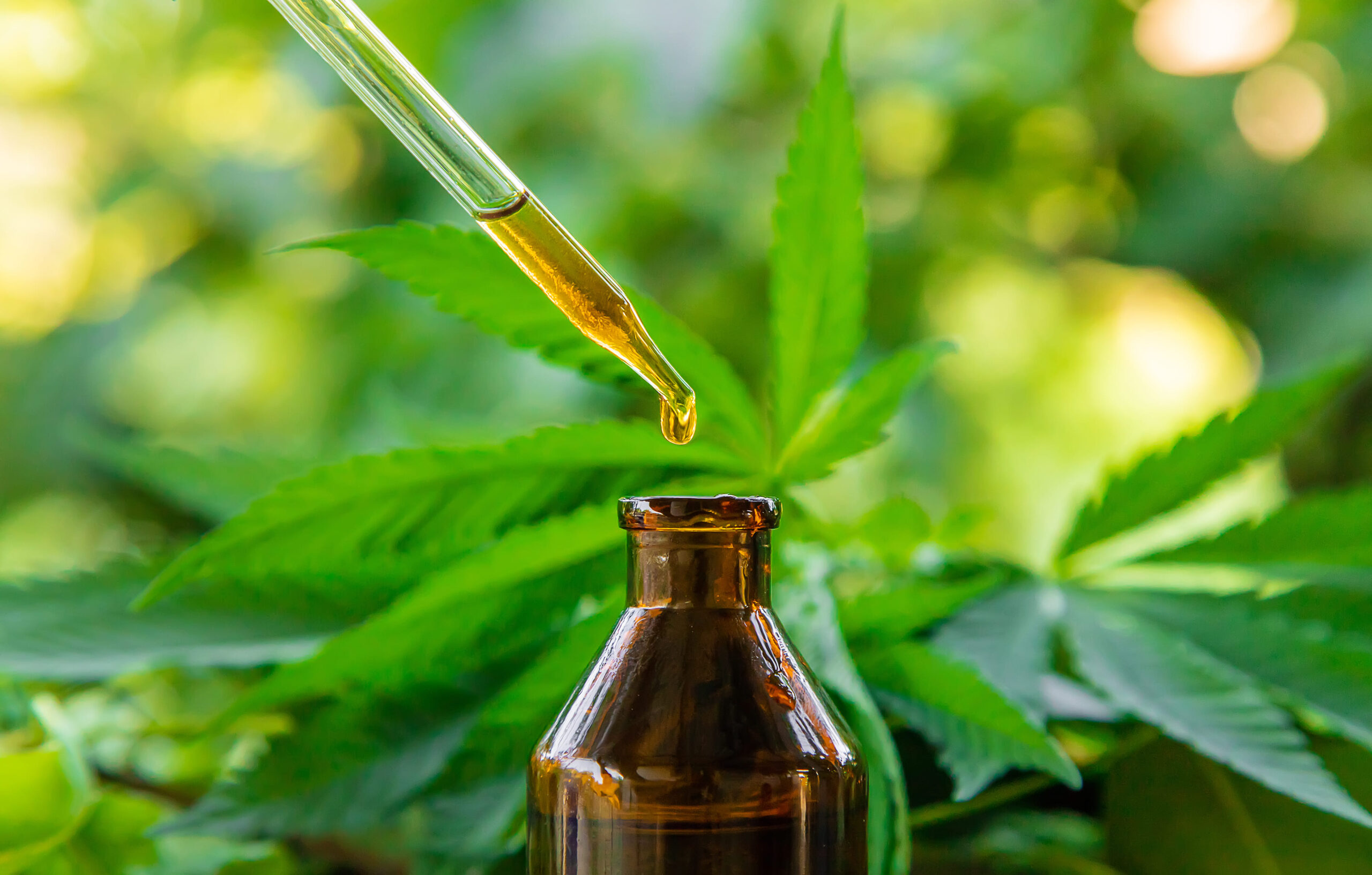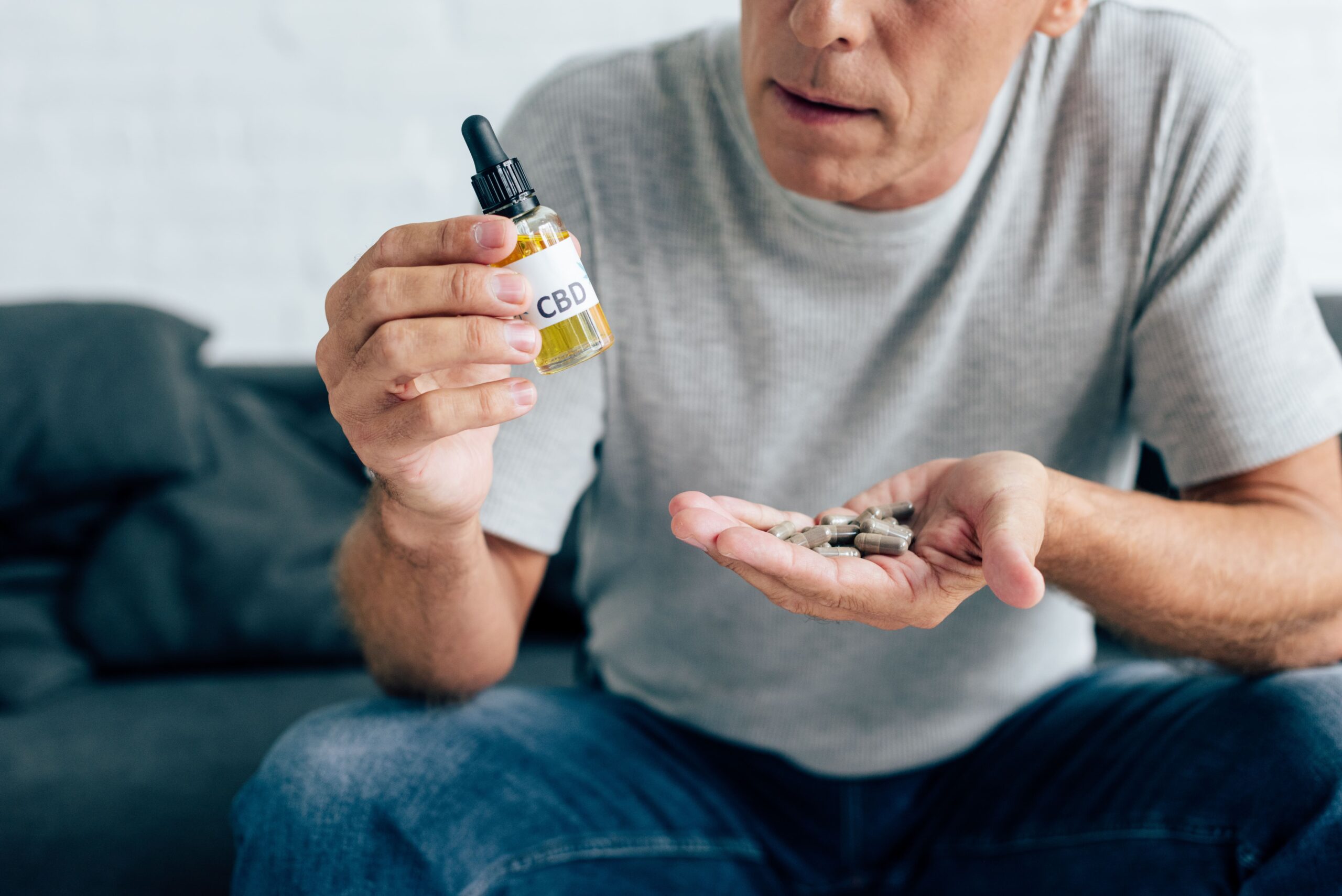Table of Contents
Introduction
Cannabidiol, commonly known as CBD, is a natural compound found in the cannabis plant.
Unlike tetrahydrocannabinol (THC), CBD does not have any psychoactive effects and is known for its therapeutic benefits. CBD is available in various forms such as oils, capsules, gummies, creams, and more.
However, finding the right CBD product, concentration, and dosage can be a challenging task for beginners. Dosage is a critical aspect when it comes to using CBD products.
The ideal dosage for an individual depends on various factors such as body weight, the severity of symptoms, and the concentration of CBD in the product.
In this article, we will discuss how to calculate and choose the right CBD oil dosage, the different factors that affect CBD dosage, and the bioavailability of different CBD uses.
Apart from the dosage guide, we will also discuss the benefits of CBD oil, the difference between full-spectrum and broad-spectrum CBD, the best CBD product for your needs, and more.
We will also provide specific CBD dosage recommendations for stress, pain, improved sleep, and mood.
It is important to note that CBD dosage is a personalized approach, and seeking professional advice is always recommended. In the following sections, we will delve deeper into the details of CBD dosage and its application to help you find the right CBD product, concentration, and dosage for your needs.
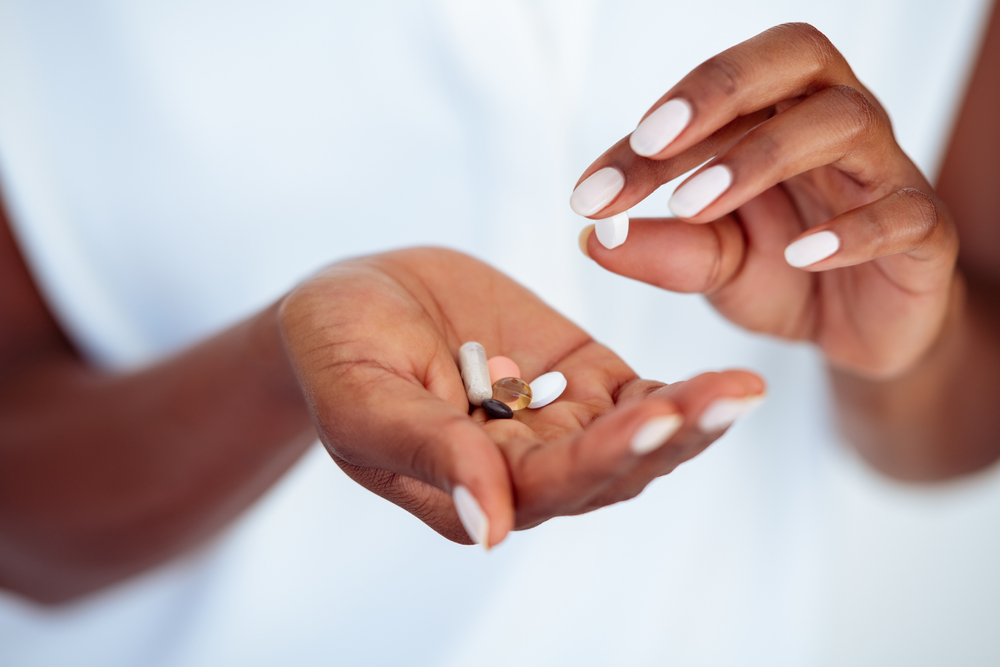
General CBD Dosage Guide
CBD dosage can vary greatly depending on the individual and their specific needs.
There are several factors to consider when determining the appropriate dosage, including the concentration of CBD in the product, body weight, and the severity of symptoms.
It is also important to note that CBD is not a one-size-fits-all solution and may require some trial and error to find the optimal dosage.
Factors that affect CBD dosage include the concentration of CBD in the product, the individual’s body weight, and the severity of symptoms. It is important to start with a low dosage and gradually increase until the desired effects are achieved.
Legal notice: It is essential to understand the legal status of CBD in your state or country before purchasing or consuming CBD products.
CBD laws can vary from state to state and country to country, and it is important to ensure that CBD products comply with local laws and regulations.
Is it possible to overdose on CBD? While it is unlikely to overdose on CBD, taking too much can lead to adverse effects such as fatigue, diarrhea, and changes in appetite.
It is important to follow dosage guidelines and start with a low dose, gradually increasing as needed. It is also recommended to consult with a healthcare professional before starting to take CBD.
Calculating your CBD dose
CBD dosing is a personal matter, and each individual may require a different amount to achieve their desired effects.
Several factors come into play when calculating your CBD dose, including body weight, metabolism, the concentration of CBD in the product, and the severity of symptoms you are trying to manage.
When choosing a CBD product, it’s crucial to read the label and understand how much CBD it contains per serving. The amount of CBD in a product is usually listed in milligrams (mg).
Once you know the CBD concentration, you can use a simple calculation to determine the amount of CBD in each dose.
For instance, if your bottle of CBD oil contains 1000mg of CBD and has 30 servings per bottle, each serving will contain around 33mg of CBD (1000mg ÷ 30 servings = 33mg/serving).
Determining the number of drops to take can be more challenging, as it depends on the potency of the oil and the size of the dropper. Generally, a standard dropper holds 1ml of liquid, which equates to around 20 drops.
If your CBD oil bottle contains 1000mg of CBD in 30ml of oil, each drop will contain around 1.67mg of CBD (1000mg ÷ 600 drops = 1.67mg/drop).
When it comes to calculating your CBD dose, it’s essential to start low and go slow. Start with a small amount, monitor the effects, and gradually increase the dose until you achieve the desired results.
Always follow the dosing instructions provided by the manufacturer, and if in doubt, consult with a healthcare professional.
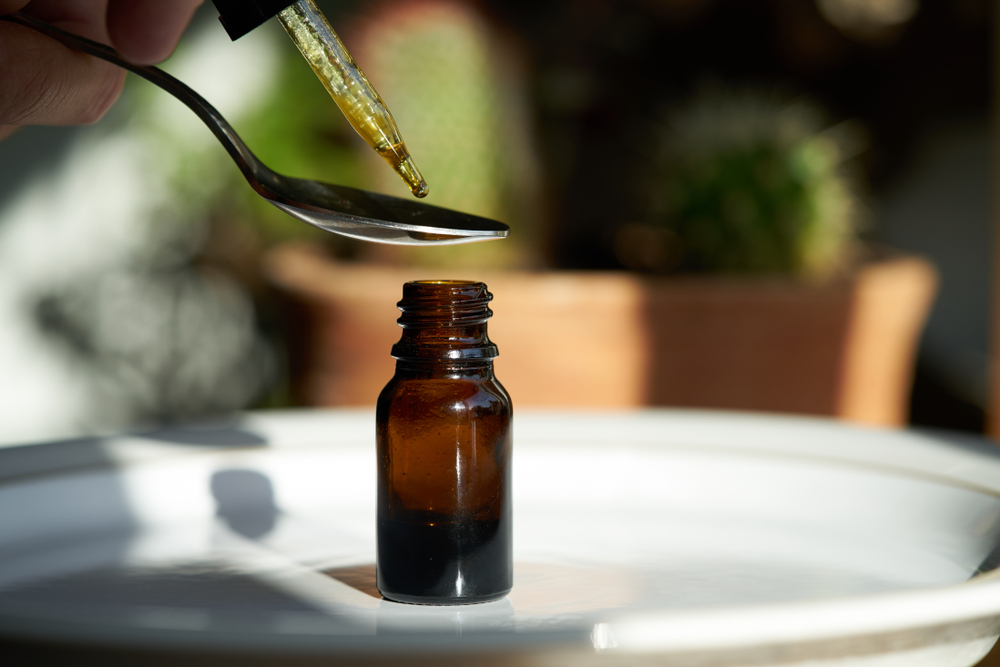
CBD Dosage according to Pathologies and Severity of Symptoms
CBD has been studied for its potential therapeutic benefits in various medical conditions, including epilepsy, anxiety, chronic pain, and sleep disorders.
The dosage of CBD varies depending on the condition being treated and the severity of the symptoms.
For instance, in the case of epilepsy, studies have shown that a daily dose of CBD between 200-300 mg can reduce the frequency and severity of seizures in adults and children.
Similarly, in the case of anxiety, a daily dose of 300-600 mg has been found to be effective in reducing symptoms.
In chronic pain, a daily dose of 2.5-20 mg of CBD has been found to be effective in reducing pain and improving sleep quality. However, the dosage may need to be adjusted depending on the severity of the pain and individual response.
It is important to note that CBD dosage for different pathologies and symptoms is still being studied, and there is no one-size-fits-all approach.
It is important to consult with a healthcare professional before starting CBD therapy and to follow their recommended dosage.
In addition, it is recommended to start with a low dosage and gradually increase it until the desired effect is achieved. Keeping a journal to track symptoms and dosage can also help in determining the optimal dosage for an individual.
Factors that Affect CBD Dosage
When determining the appropriate dosage of CBD for an individual, several factors should be considered.
These include the CBD concentration of the product, the individual’s body weight, and the bioavailability of the mode of administration.
CBD (or any other cannabinoid) concentration of your product is an essential factor to consider when calculating your CBD dosage.
The concentration of CBD in a product is typically listed on the packaging and is expressed in milligrams (mg). The higher the concentration of CBD, the less product you will need to achieve your desired dosage.
Your body weight is another factor that should be taken into account. Generally, individuals with a higher body weight require a higher dosage of CBD to achieve the same effects as someone with a lower body weight.
It is recommended to start with a lower dose and gradually increase it until you achieve the desired effect.
The bioavailability of the mode of administration is also a crucial factor in determining the appropriate dosage of CBD. Bioavailability refers to the amount of CBD that enters the bloodstream and is available for use by the body.
The bioavailability of CBD can vary depending on the method of consumption. For example, inhalation has a higher bioavailability than oral consumption because it bypasses the digestive system.
In summary, when determining the appropriate dosage of CBD, it is important to consider the concentration of CBD in the product, the individual’s body weight, and the bioavailability of the mode of administration.
It is recommended to start with a low dosage and gradually increase it until the desired effect is achieved. It is also essential to consult with a healthcare professional before beginning any CBD regimen.
Bioavailability of Different CBD Uses
Bioavailability refers to the degree and rate at which a substance is absorbed by the body’s circulatory system.
It is an important factor to consider when determining CBD dosage since different methods of CBD administration have different levels of bioavailability. The higher the bioavailability, the more effectively the body can absorb and utilize the CBD.
The bioavailability of CBD can vary depending on the method of administration. For example, oral ingestion of CBD, such as taking CBD oil capsules, has a lower bioavailability than inhalation methods like smoking or vaporizing CBD.
Sublingual administration, where CBD oil is held under the tongue, has a higher bioavailability than oral ingestion, but still lower than inhalation methods.
In addition to the method of administration, factors such as individual body chemistry and metabolism can also affect bioavailability. It is important to keep this in mind when calculating CBD dosage.
To ensure the most effective and efficient delivery of CBD, it is recommended to choose a method of administration with higher bioavailability, such as inhalation or sublingual administration, if possible.
This can help to achieve the desired effects with a lower overall dosage of CBD.
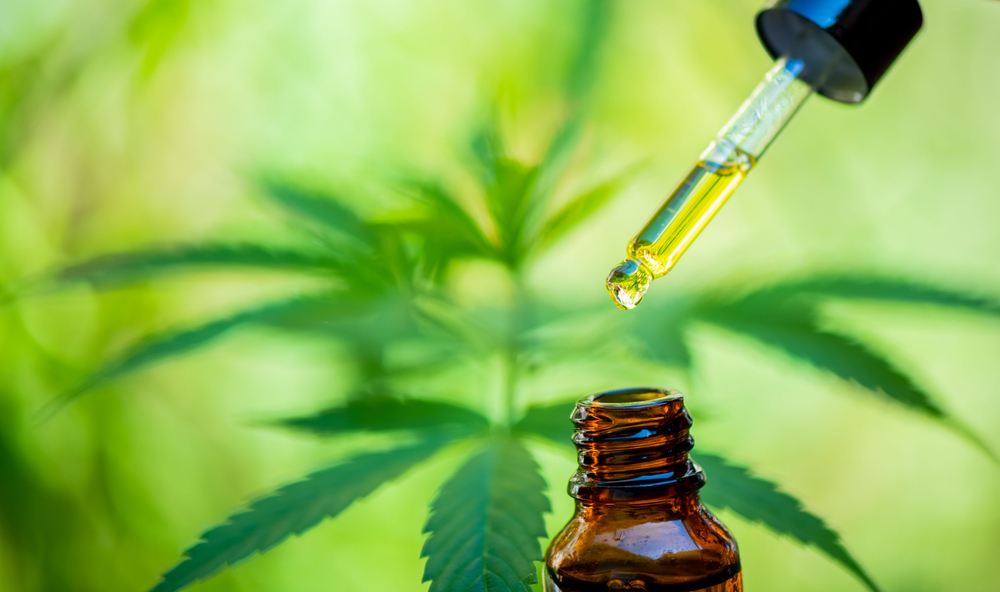
CBD Dose for Specific Purposes
CBD has been reported to have beneficial effects on various health conditions. Here are some general guidelines on CBD dosage for specific purposes:
CBD for Stress:
The dosage for stress relief is highly individual and can depend on various factors such as age, weight, and tolerance. A general recommendation is to start with a low dose of around 10-20mg per day, and gradually increase until the desired effect is achieved.
CBD Dosage For Pain:
Dosage for pain relief may also vary, depending on the severity of the pain and the individual’s response to CBD. A typical starting dose is 5-10mg per day, with an increase in dosage as necessary. It is important to note that CBD is not a substitute for medical treatment, and those experiencing severe pain should always consult with a healthcare professional.
Dosage Of CBD For Improved Sleep:
CBD has been reported to have a calming effect, making it useful for improving sleep quality. A recommended starting dose for sleep issues is 20-40mg per day, taken about 30 minutes before bedtime.
Dosage Of CBD For Mood:
CBD has been reported to have mood-enhancing effects, with some people reporting feeling more relaxed and less anxious after taking it. A starting dose of around 10-20mg per day is recommended, with an increase in dosage as necessary.
It is important to note that these are general guidelines and that individual responses to CBD can vary. It is always advisable to start with a low dose and gradually increase until the desired effect is achieved.
Additionally, it is recommended to consult with a healthcare professional before starting a CBD regimen, especially if you have an existing medical condition or are taking medication.
Mg CBD vs Percentage
When purchasing a CBD product, you will often see both the total amount of CBD in milligrams (mg) and the percentage of CBD on the label. It is important to understand the difference between the two when calculating your dosage.
The total amount of CBD in milligrams refers to the actual amount of CBD in the product, whereas the percentage of CBD is the concentration of CBD relative to the total volume of the product.
For example, a 30ml bottle of CBD oil with 1000mg of CBD will have a concentration of approximately 33mg of CBD per ml. This same product might also be labeled as containing 3.3% CBD. This percentage is calculated by dividing the total amount of CBD by the total volume of the product (1000mg/30ml = 0.033 or 3.3%).
Calculating your CBD dosage using milligrams of CBD is more accurate than using percentages. This is because the total amount of CBD in the product does not necessarily reflect the strength of each dose.
For example, a 30ml bottle of CBD oil with 1000mg of CBD might recommend a dosage of 1ml, which would contain 33mg of CBD. However, a 10ml bottle of CBD oil with 500mg of CBD might recommend a dosage of 0.5ml, which would also contain 33mg of CBD.
In this case, the smaller bottle has a higher concentration of CBD, and therefore a smaller dose is required to achieve the same amount of CBD.
To accurately calculate your CBD dosage, always use the total amount of CBD in milligrams rather than the percentage.
How To Take CBD: CBD Dosage
When it comes to taking CBD, there are several factors to consider in order to determine the best method and dosage for you. One important consideration is the bioavailability of the mode of administration, which affects how much of the CBD is actually absorbed and utilized by the body.
For example, sublingual administration (under the tongue) has higher bioavailability than oral ingestion, as the CBD is absorbed directly into the bloodstream through the mucous membranes in the mouth.
Another factor to consider is the speed of onset and duration of effects. Inhalation methods such as smoking or vaping have a faster onset time but shorter duration of effects compared to oral ingestion or topical application.
Additionally, the desired effects and symptoms being targeted can also influence the method and dosage of CBD.
For example, CBD for pain may be best administered topically or orally, while CBD for anxiety or sleep may be best administered sublingually or through inhalation.
It’s also important to start with a low dose and gradually increase until you achieve the desired effects, as everyone’s body and tolerance levels are different.
CBD oil tinctures are a popular and convenient option for dosing, as they allow for precise measurement and can be easily added to food or beverages. However, there are also a variety of other CBD products available such as capsules, gummies, topical creams, and even pet products.
Ultimately, the best way to determine the right method and dosage of CBD for you is through experimentation and consultation with a healthcare professional knowledgeable in CBD.
By considering factors such as bioavailability, onset and duration of effects, desired effects and symptoms, and personal tolerance levels, you can find the optimal CBD regimen to support your health and wellness.
CBD: Application & Dosage
CBD comes in various forms, and choosing the right one for you depends on various factors. Full-spectrum CBD contains all the natural compounds found in the cannabis plant, including THC, which may have psychoactive effects.
Broad-spectrum CBD, on the other hand, contains all the natural compounds except THC, making it a good option for those who want to avoid any psychoactive effects.
CBD isolate is the purest form of CBD, with all other natural compounds removed. It may be beneficial for those who have sensitivities to other compounds found in the plant. if you want to learn more check out this article.
The concentration of CBD in a product also varies, and it’s important to choose the right one for your needs. Lower concentrations of CBD may be suitable for those with mild symptoms, while higher concentrations may be more appropriate for those with more severe symptoms.
The method of administration also affects the bioavailability of CBD. Inhalation methods, such as vaping or smoking, have the highest bioavailability, followed by sublingual tinctures and topicals.
Edibles and capsules have the lowest bioavailability since they must pass through the digestive system.
It’s essential to start with a low dose of CBD and gradually increase until you reach your desired effect. This process is called titration, and it allows you to find your optimal dose while avoiding any potential side effects.
It’s important to note that the effects of CBD may not be immediate and may take several days or weeks to build up in your system.
When taking CBD, it’s important to follow the manufacturer’s instructions and consult with a healthcare professional if you have any underlying medical conditions or are taking other medications.
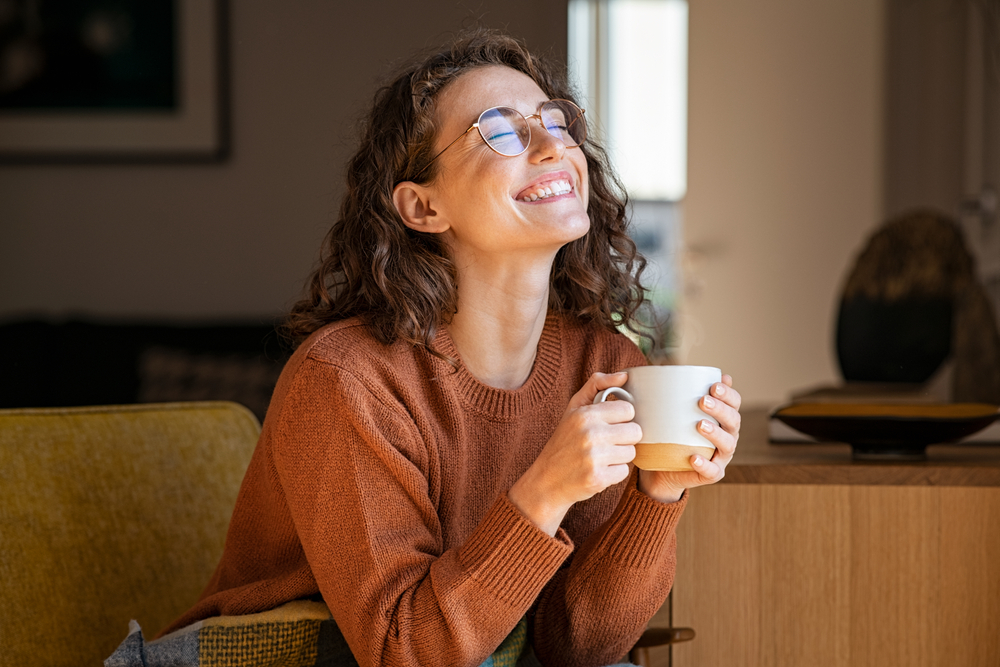
Conclusion
In conclusion, finding the right CBD dosage is crucial to ensure optimal results and minimize the risk of adverse effects.
As discussed, the ideal dosage varies depending on several factors, such as the individual’s body weight, the severity of symptoms, the CBD concentration of the product, and the mode of administration. It is essential to start with a low dosage and gradually increase it until you achieve the desired effects.
CBD can be consumed in various forms, including oils, capsules, edibles, topicals, and vaping products, each with different bioavailability rates. It is crucial to understand the bioavailability of the chosen method of administration to ensure that you are getting the optimal dosage.
It is also essential to note that CBD products are not regulated by the FDA, and the recommended dosages are not standardized.
Thus, it is crucial to seek professional advice from a healthcare provider knowledgeable about CBD before starting any CBD treatment.
In summary, personalized CBD dosage is the key to achieving optimal results. Start with a low dosage and gradually increase it, while keeping track of your symptoms and adjusting the dosage accordingly.
Always make sure to purchase high-quality, reputable CBD products and consult with a healthcare professional if you have any concerns or questions.



